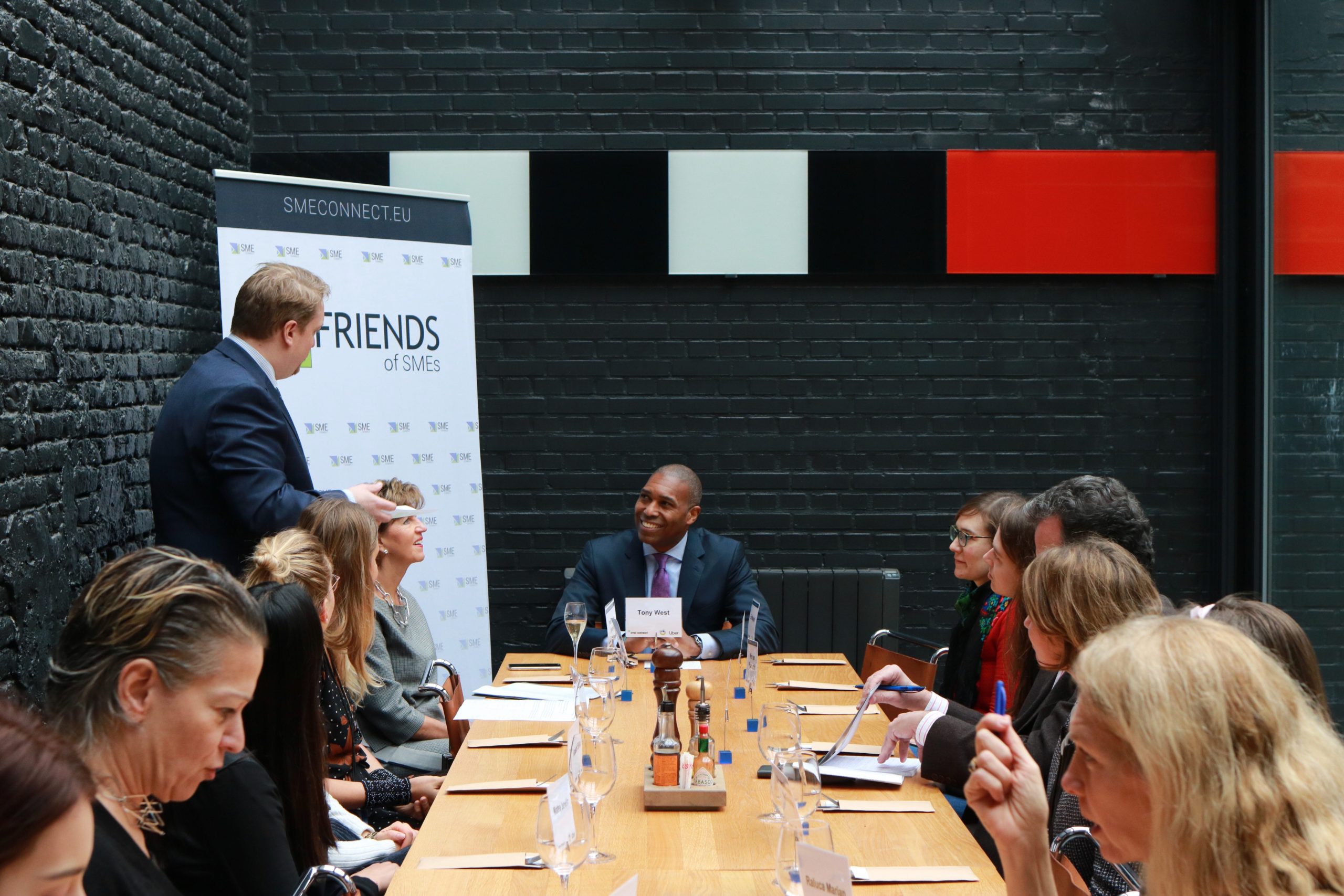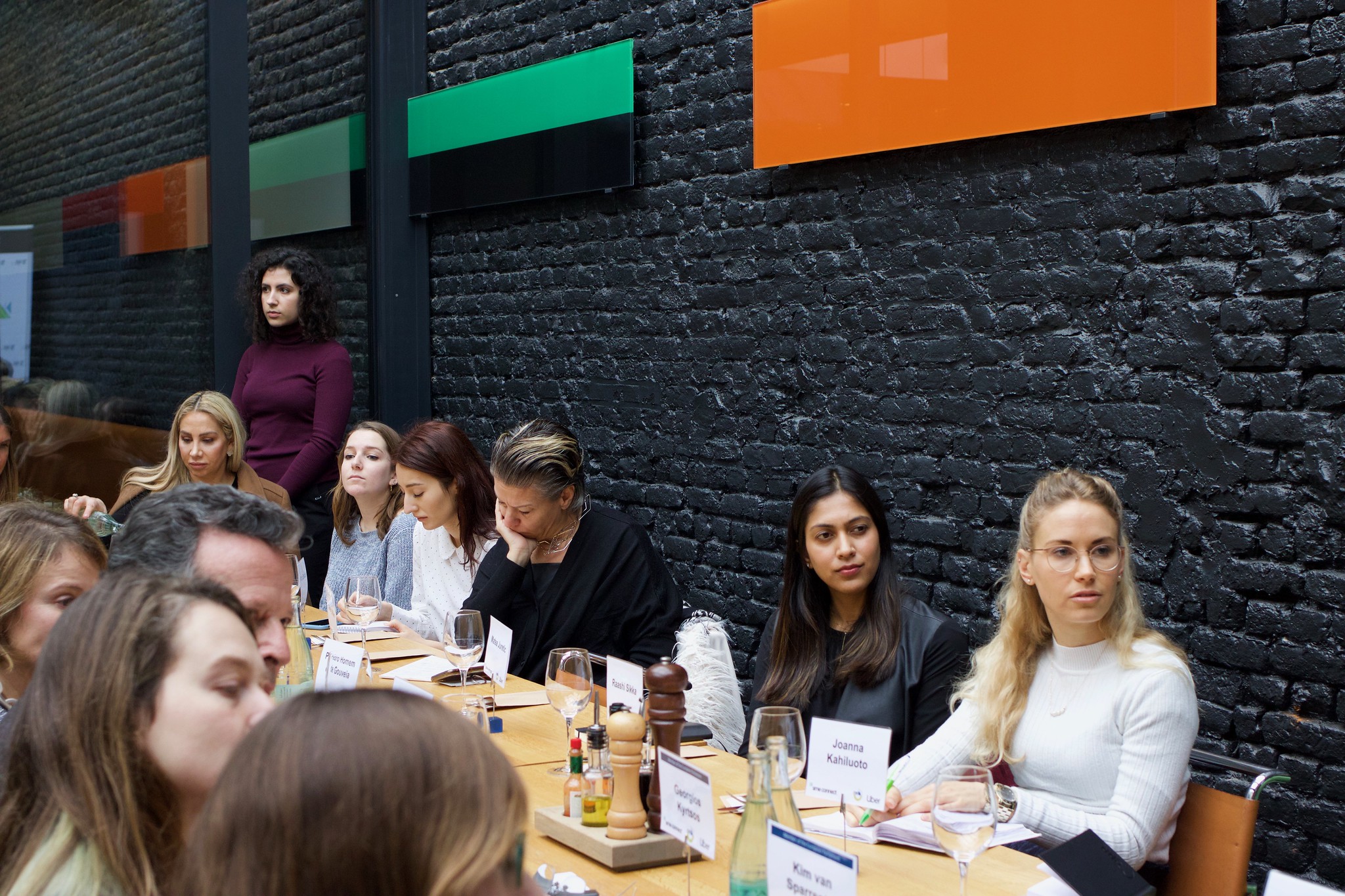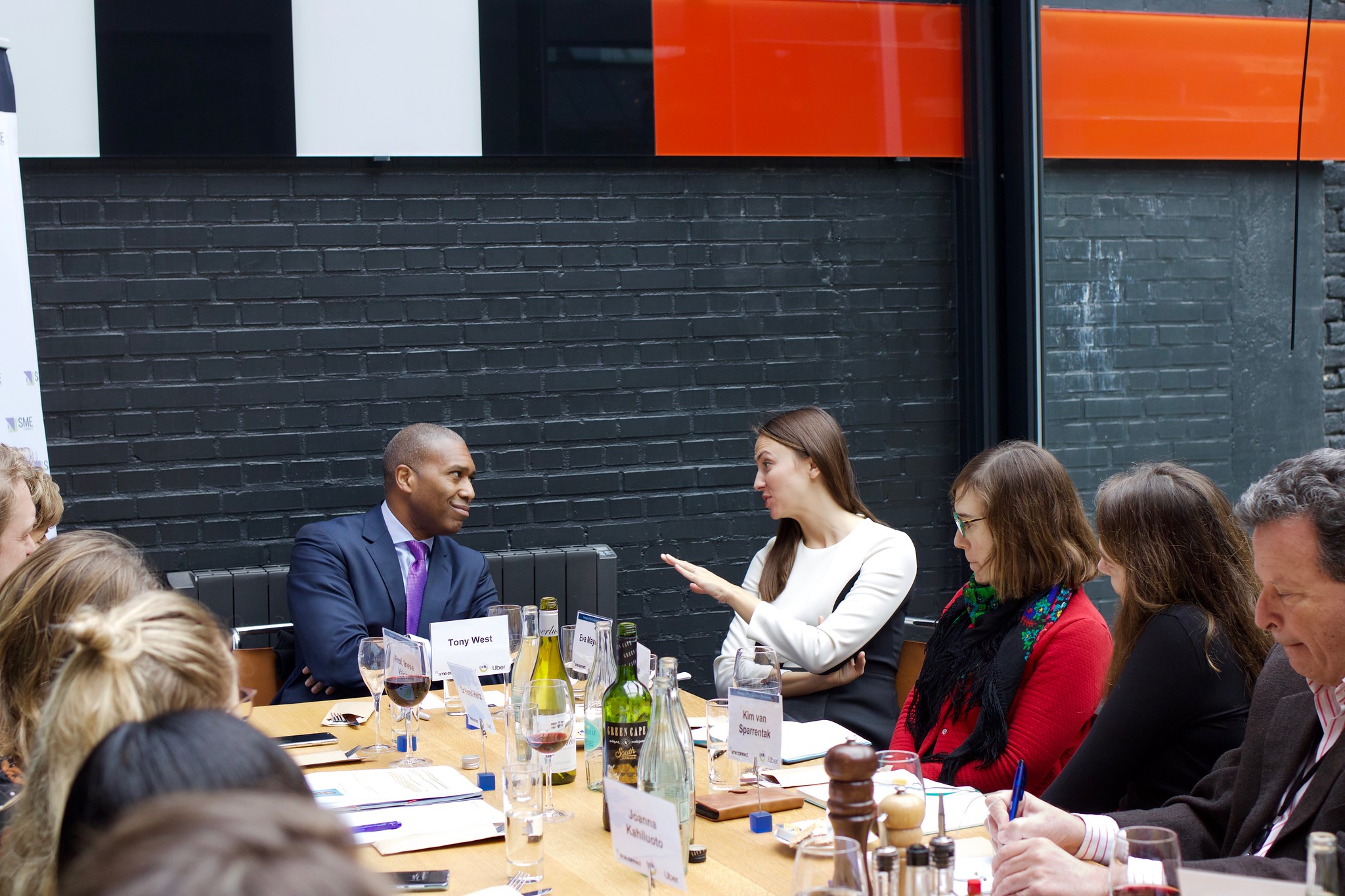Diversity & Inclusion in a Changing World of Work with Tony West, Senior Vice-President & Chief Legal Officer with Uber

In the framework of an informal lunch on 22 January, SME Connect hosted an exchange of perspectives on Inclusion and Diversity in a Changing World of Work that brought together Uber Executive Board – Tony West, Senior Vice-President and Chief Legal Officer; Raashi Sikka, Head of Diversity and Inclusion, EMEA and Zuzana Púciková Head of EU Policy, as well as Members of the European Parliament Prof. Inese Vaidere MEP (EPP), Eva Maydell MEP (EPP), Kim van Sparrentak MEP (Greens) and Georgios Kyrtsos MEP (EPP), Joanna Kahiluoto, DG DEVCO and civil society representatives from POLIS Network, the European Disability Forum, the International Road Transport Union and the Digital Leadership Institute.
The event took place in the context of a new European Commission that has pledged to focus more than ever on tackling equality and inclusion issues through plans for a new anti-discrimination legislation and a European Gender Strategy. At the same time, work is changing as people look for flexibility and work-life balance as well as new kinds of independent work opportunities grow in private sector, creating cultures that challenge stereotypes and ensure diversity and inclusion are key to attract and retain talent.
This invitation-only roundtable has given stakeholders the opportunity to discuss what is needed from policy and from the private sector, from SMEs to large global companies, to create the right conditions to encourage people from as broad a demographic as possible to enter and thrive in the workforce.

Among the topics debated, female entrepreneurship featured prominently: participants reflected on how to unlock the individual and societal potential of women by encouraging and protecting their participation in the labour market. In this regard, public-private partnerships can ensure safety for all workers, and especially women, in their commute from work in peri-urban areas and in time slots not serviced by public transport. More pointedly, for those employed in the gig economy, working flexible hours allows them their desired work-life balance, while at the same time supplementing their income and giving them access to employment.

However, the digital skills gap remains an issue that plays into the lack of minority representation in the gig economy and particularly in the case of digital platforms such as Uber. As concluding remarks, all participants recognised the importance of promoting digital skills for minorities as a way to successfully enter the labour market. First steps towards this objective have been done through Digital2Equal*, an initiative that seeks to expand women’s access to opportunities in online platforms led by the International Finance Cooperation in partnership with 17 leading technology companies, among which Uber.
In an informal, yet high-level setting, the lunch discussion on “Diversity and Inclusion in a Changing World of Work” sparked a productive debate on current topics, especially relevant in the context of the European Pillar of Social Rights that will contribute to the agenda of our upcoming working group on Mobility and the Future of Work.
For more photos from this event here